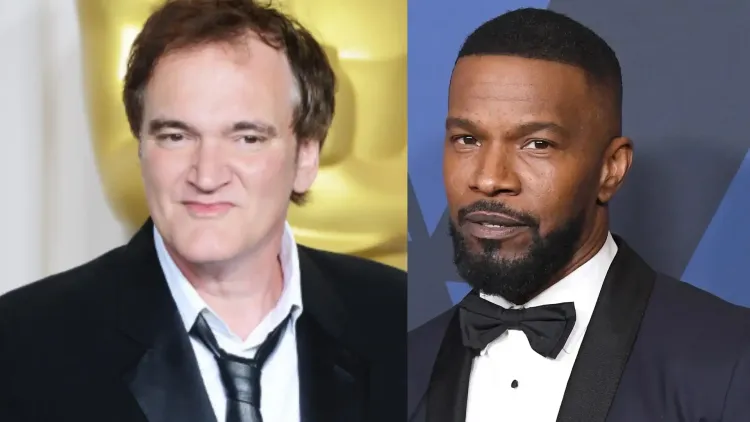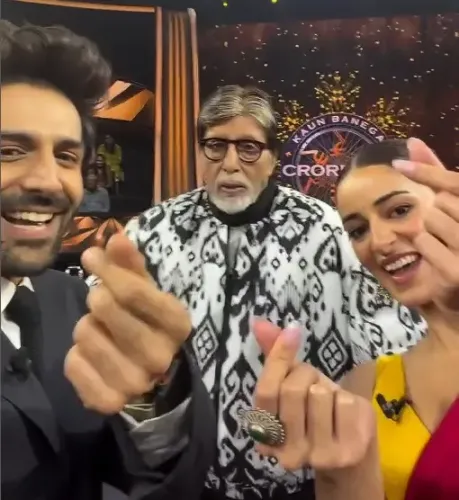Quentin Tarantino Advised Jamie Foxx on His 'Django Unchained' Performance

Synopsis
Key Takeaways
- Quentin Tarantino directed Jamie Foxx in Django Unchained.
- Foxx's portrayal required shedding his real-life persona.
- The film is set in Texas in 1858.
- It features a mix of humor and intense scenes.
- Tarantino emphasized the historical accuracy of the film's portrayal of slavery.
Los Angeles, Jan 18 (NationPress) Acclaimed director Quentin Tarantino informed actor Jamie Foxx that he was portraying the character of a slave in Django Unchained with an attitude that was "too cool" for the role.
The 57-year-old star played the role of Django, a slave-turned-bounty hunter, in the 2012 action-western film.
During his guest appearance on The Graham Norton Show, Foxx recounted, "While I collaborated with him on Django Unchained, he maintained a strict approach. Although I was portraying a slave, he remarked that my demeanor was too cool for the role, and I needed to shed all elements of my real-life persona. Once I relinquished those aspects, the character truly came alive for me."
Set against the backdrop of Texas in 1858, where the slave trade flourished, Django Unchained tells the story of Foxx's character, who is liberated by bounty hunter Dr. King Schultz, played by Christoph Waltz. He embarks on a quest to rescue his wife Bromhilda von Schaft, portrayed by Kerry Washington, from the clutches of the vile Calvin Candie, played by Leonardo DiCaprio, and his nefarious servant Stephen, enacted by Samuel L. Jackson.
Although Django Unchained features scenes that some viewers may find disturbing—such as a brutal scene where one of Calvin's slaves meets a gruesome fate at the jaws of a dog for attempting to flee—the director has previously asserted, "What transpired during the era of slavery is far worse than what is depicted in my film."
In an interview on NPR's Fresh Air, he stated, "If I were to portray it a thousand times harsher, that would not be exploitative; that would simply be the reality. If you find it overwhelming, that’s on you."
While he expresses satisfaction with the film, Tarantino acknowledged his worries about potentially having to cut a scene he cherished—where a group of Ku Klux Klan members argue over their bag-like masks.
On the Empire Film Podcast, he shared, "That scene garnered more laughter than I’ve ever experienced in any screening, and this reaction occurs worldwide.
“It was a standout moment in the script. Amy Pascal from Sony, in part, was motivated to produce this film at Columbia due to that scene."
“However, as it was such a popular part of the written script, I began to feel anxious about whether it would translate well into the film. Would it maintain the same impact with actors portraying the characters? It’s not tied to a single performance but involves many people, and it occurs at an unusual point in the narrative.”










